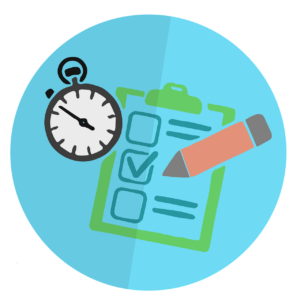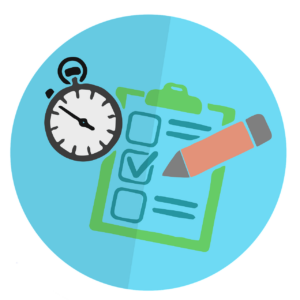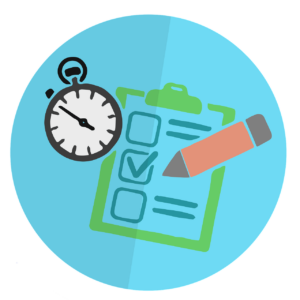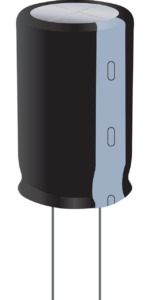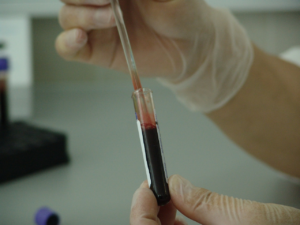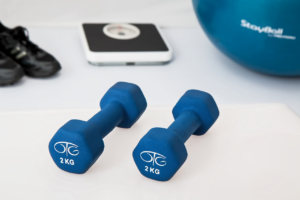Are you a nursing graduate in the Philippines looking to take the board exam? Do you feel overwhelmed with the registration process, exam format, and content? Don’t worry, we’ve got you covered.
In this article, we’ll give you everything you need to know about the Philippine Nursing Board Exam.
First, we’ll walk you through the registration process and provide you with all the necessary information and requirements.
Then, we’ll give you a breakdown of the exam format and content so you know what to expect on exam day.
We’ll also recommend study materials and provide strategies for exam preparation, so you can feel confident and prepared when it’s time to take the exam.
Finally, we’ll give you some tips for exam day and help you understand the results.
So, sit back, relax, and let us guide you through the Philippine Nursing Board Exam.
Key Takeaways
- To be eligible to take the Philippine Nursing Board Exam, one must have completed a BSN degree from an accredited institution.
- The exam consists of 5 parts, lasts for 8 hours, and has a passing rate of 75%. Recommended study materials include Saunders Comprehensive Review for the NCLEX-RN Examination, Kaplan Nursing, and NurseBuff.
- Effective study strategies for the exam include time management and mastering test-taking techniques, while exam day tips include arriving early, wearing comfortable clothing, and managing test anxiety.
- Those who pass the exam can apply for a license and start their career as a registered nurse, while those who fail should use the experience to focus on improving their knowledge and skills. Results are released within a few weeks and can be checked online through the PRC website.
Understanding the Registration Process
So, you’re ready to register for the nursing board exam and you can already picture yourself submitting your documents online with ease. But before you do, make sure you know the registration requirements and application procedure.
To be eligible for the nursing board exam, you must have completed a Bachelor of Science in Nursing (BSN) degree from an accredited institution and have the necessary documents to prove it. These documents include a transcript of records, a diploma, and a certificate of graduation.
Once you have all the necessary documents, you can start the application procedure. First, you need to create an account on the Professional Regulation Commission (PRC) website and fill out the online application form. You’ll then need to upload a scanned copy of your documents and pay the registration fee.
After completing these steps, you can choose your preferred exam center and schedule your exam date. It’s important to note that the registration period is only open for a limited time, so make sure to check the PRC website for the latest updates and deadlines.
Exam Format and Content
Get ready to tackle the format and content of the exam by familiarizing yourself with the types of questions and topics that may come up.
The Philippine Nursing Board Exam consists of five parts: Nursing Practice I, Nursing Practice II, Community Health Nursing, Care of Healthy/Maternal and Child, and Care of Clients with Physiologic and Psychosocial Alterations.
The exam duration is eight hours, with a two-hour break in between.
The exam is divided into two sections, with 100 items each.
The passing rate is 75%, and you need to get at least 60% in each of the five parts to pass the exam.
The types of questions may include multiple-choice, multiple response, and select-all-that-apply.
The exam covers a wide range of nursing topics, so it’s essential to review and study different nursing concepts, theories, and principles thoroughly.
Recommended Study Materials
To ace the test, it’s crucial to have access to helpful study materials. Luckily, there are various resources available to help you prepare for the Philippine nursing board exam. Here are some top publishers and online resources that you can use to supplement your studies:
-
Saunders Comprehensive Review for the NCLEX-RN Examination: This book is considered a must-have by many nursing students and professionals. It covers all the topics you need to know for the exam, and it includes practice questions and rationales to help you understand the concepts better.
-
Kaplan Nursing: This online resource offers a range of study materials, such as online courses, practice exams, and question banks. They also have a mobile app that you can use to study on-the-go.
-
NurseBuff: This website offers free study materials, such as cheat sheets, mnemonics, and study guides. They also have a blog section where you can read articles on nursing-related topics.
Aside from these resources, it’s also important to take practice exams and mock tests to simulate the actual exam experience. Doing so can help you identify your strengths and weaknesses and adjust your study plan accordingly. You can find practice exams and mock tests from most publishers and online resources mentioned above.
Strategies for Exam Preparation
Preparing for the exam requires developing effective study strategies and habits that’ll help you retain information and build confidence in your knowledge and skills. One important strategy is time management. You need to allocate your study time wisely and prioritize the topics that you find difficult or challenging.
Create a study schedule that allows you to cover all the subjects, while giving more focus on the areas where you need to improve. Avoid cramming and spread out your study sessions over a period of time. This’ll help you avoid burnout and retain the information better.
Another important strategy is to master test taking techniques. Familiarize yourself with the exam format and types of questions that’ll be asked. Practice answering sample questions and taking mock exams to simulate the actual test environment. This’ll help you identify your strengths and weaknesses, and allow you to develop effective test-taking strategies.
For example, learn how to manage your time during the exam, how to read the questions carefully, and how to eliminate wrong answers. By mastering these techniques, you’ll be able to approach the exam with more confidence and increase your chances of passing.
Tips for Exam Day
On exam day, make sure you arrive early to the testing center and bring all necessary materials, such as identification and approved calculators. It’s important to have all your exam day essentials ready beforehand, so you can focus on the exam itself.
Remember to wear comfortable clothing and bring snacks and water to keep yourself energized throughout the test. Managing test anxiety is also crucial on exam day. Take deep breaths and remind yourself that you’ve prepared well for this moment.
Avoid discussing the exam with other test takers before the test as it may add unnecessary stress. Lastly, read the exam instructions carefully and allocate your time wisely to ensure that you can answer all the questions.
With these tips in mind, you can approach the Philippine nursing board exam with confidence and peace of mind.
Understanding the Results
Understanding your results can be a nerve-wracking experience, but it’s important to remember that they’re a reflection of your hard work and dedication.
The Philippine Nursing Board Exam results are usually released within a few weeks after the exam. You can check your scores online or through the Professional Regulation Commission (PRC) website.
The results will show your overall score and the scores for each subject. It’s important to note that the passing rate for the exam is 75%, so if you scored below that, you’ll need to retake the exam.
Interpreting your scores can be confusing, but the PRC provides a breakdown of the scores for each subject. This can help you identify which areas you need to improve on if you plan on retaking the exam.
If you passed the exam, congratulations! You can now apply for your license and start your career as a registered nurse. However, if you didn’t pass, don’t be discouraged. Many successful nurses have had to retake the exam before passing.
Use your results as a learning experience and focus on improving your knowledge and skills in the areas where you struggled. With hard work and dedication, you can pass the exam and become a licensed nurse.
Frequently Asked Questions
How long does it take to receive the exam results?
When it comes to exam result processing, you’re probably eager to know how long it takes to receive your scores. Well, the length of time it takes to receive your exam results can vary depending on a few factors.
For starters, it can depend on when you took the exam and how many people took it alongside you. Generally, it can take anywhere from a few days to a few weeks to receive your exam scores. However, some exam boards may take longer to process and release scores, so it’s important to check with your specific board for more information.
Regardless of how long it takes, once your exam scores are released, you’ll be able to view them and determine whether you passed or need to retake the exam.
Can I take the exam in a language other than English or Filipino?
You might be wondering if you can take the nursing board exam in a language other than English or Filipino. Well, the short answer is no.
According to the exam requirements, the language options for the nursing board exam are limited to English and Filipino. Therefore, it’s important that you have a good grasp of both languages, particularly in terms of their technical and medical terminologies, in order to pass the exam.
Is there a limit to how many times I can take the exam?
You may be wondering about the number of attempts you can make when taking the nursing board exam and how much the exam fees will cost you. Well, the answer is that there are limits to the number of times you can take the exam, and it varies depending on the state or country you’re in.
Additionally, each attempt will come with a fee, and you’ll need to pay it before taking the exam. Therefore, it’s essential to prepare yourself adequately and make the most out of each attempt.
It’s also worth noting that some states or countries may offer review classes to help you pass the exam on your first try, so be sure to check with your local nursing board for more information.
Are there any restrictions on what I can bring into the testing center on exam day?
When it comes to exam day preparation, it’s important to know exactly what items are prohibited from the testing center. You don’t want to risk getting disqualified or having your test scores voided because of something you brought with you.
Some common prohibited items include electronic devices, study materials, food and drinks, and large bags or backpacks. Make sure to review the specific guidelines provided by the testing center beforehand.
Additionally, it’s important to stay calm and focused during the exam. Try deep breathing exercises and positive affirmations to help alleviate any anxiety. Remember to take breaks if needed and stay hydrated.
With these tips, you can approach the exam with confidence and perform your best.
What happens if I fail the exam? Is there a waiting period before I can retake it?
If you fail the nursing board exam, there are consequences that you’ll have to face. You may not be able to practice nursing until you pass the exam.
The waiting period before you can retake the exam varies depending on your state’s board of nursing. You may need to wait anywhere from a few weeks to a few months before you can take the exam again.
It’s important to understand why you failed and take steps to improve your knowledge and skills before retaking the exam. With hard work and dedication, you can pass the nursing board exam and become a licensed nurse.
Conclusion
Congratulations! You’ve now completed reading everything you need to know about the Philippine Nursing Board Exam.
With a clear understanding of the registration process, exam format and content, recommended study materials, strategies for exam preparation, tips for exam day, and understanding the results, you’re now well-equipped to tackle this challenging exam.
Remember to take advantage of the resources available to you, such as review centers, study groups, and online forums.
Stay focused and dedicated in your preparation, and don’t forget to take care of yourself physically and mentally.
With hard work, determination, and a positive mindset, you can pass the Philippine Nursing Board Exam and embark on a fulfilling career in nursing.
Best of luck to you on your journey!

















